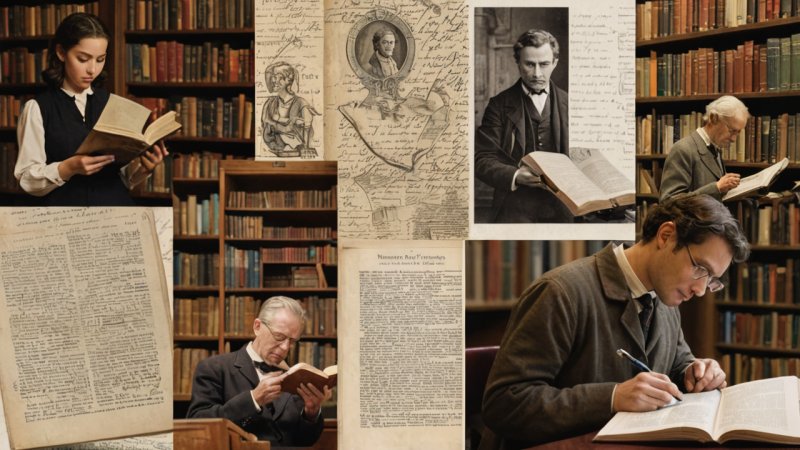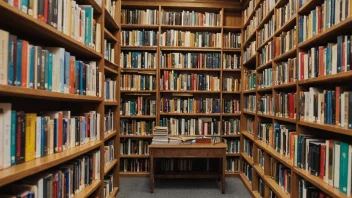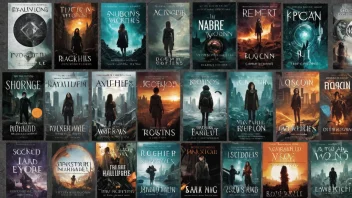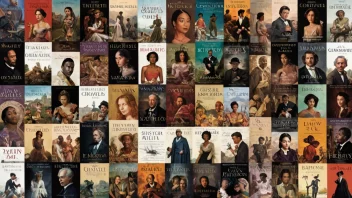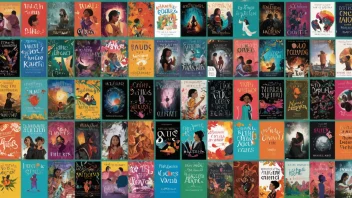Non-fiction literature serves as a crucial lens through which we can understand the past. It encompasses a diverse array of genres including biographies, memoirs, essays, and historical accounts, all of which contribute to the collective memory of societies. Non-fiction not only provides factual information but also offers interpretations and analyses that shape our understanding of historical events. In this article, we will delve into the various ways non-fiction documents history, its impact on society, and the responsibilities of non-fiction writers in presenting the truth.
The Importance of Non-Fiction in Historical Documentation
Non-fiction writing plays an essential role in preserving historical narratives. Unlike fiction, which allows for creative freedom and imaginative storytelling, non-fiction adheres to factual accuracy and objective reporting. This distinction is crucial for documentation, as it ensures that real events, figures, and contexts are recorded and can be referenced by future generations.
1. Non-Fiction as a Historical Record
Non-fiction works such as history books, documentary films, and journalistic articles serve as primary sources for historians and researchers. They provide evidence of past events, societal norms, and cultural contexts. For example, the diaries of Anne Frank offer an intimate view of life during the Holocaust, while historical texts like "A People's History of the United States" by Howard Zinn challenge traditional narratives by presenting perspectives of marginalized groups.
2. The Role of Memoirs and Biographies
Memoirs and biographies play a significant role in documenting history by providing personal accounts of significant events. These genres humanize historical figures and events, allowing readers to connect emotionally with the past. For instance, Nelson Mandela's autobiography, "Long Walk to Freedom," not only chronicles his life but also reflects the broader struggle against apartheid in South Africa. Through personal narratives, readers gain insights into the motivations, challenges, and triumphs of individuals who have shaped history.
3. The Influence of Documentary Literature
Documentary literature merges journalism and literature, offering a narrative style that engages readers while presenting factual accounts. Works like "The Immortal Life of Henrietta Lacks" by Rebecca Skloot blend scientific exploration with ethical considerations, prompting discussions about race, medical ethics, and the exploitation of individuals in the name of science. Such books underscore the importance of storytelling in conveying complex historical realities.
Challenges in Non-Fiction Historical Writing
While non-fiction is essential for documenting history, it is not without challenges. Writers must navigate issues of bias, interpretation, and the availability of sources to create accurate representations of the past.
1. The Challenge of Bias
All writers carry inherent biases shaped by their backgrounds, beliefs, and experiences. These biases can influence the portrayal of historical events and figures. For instance, a historian's political views may color their interpretation of a particular event, leading to a skewed representation. Non-fiction writers must strive for objectivity and rigorously evaluate their sources to minimize bias.
2. Interpretation and Context
Historical events are often complex and multifaceted. Non-fiction writers must interpret these events within their specific contexts, considering the social, political, and economic factors at play. This requires a deep understanding of the subject matter and a commitment to presenting a well-rounded view. For example, the interpretation of the American Civil War varies significantly depending on the perspectives of different historians, highlighting the necessity for careful analysis.
3. Access to Sources
Access to primary sources can be a significant challenge in historical writing. Many documents may be lost, destroyed, or remain inaccessible due to privacy laws or institutional restrictions. Non-fiction writers often have to rely on secondary sources, which can introduce additional layers of interpretation that may not fully capture the original events. This challenge emphasizes the importance of diligent research and the critical evaluation of sources.
Non-Fiction’s Impact on Society and Culture
The impact of non-fiction extends beyond mere documentation; it shapes societal understanding and cultural discourse. Books that explore historical subjects often spark conversations, challenge existing narratives, and promote social change.
1. Shaping Public Perception
Non-fiction works can significantly influence public perception of historical events. For example, "Silent Spring" by Rachel Carson raised awareness about environmental issues and prompted a movement towards ecological preservation. Such literature educates the public and encourages critical thinking regarding issues that resonate with contemporary society.
2. Fostering Critical Discourse
Non-fiction literature often serves as a catalyst for discussion and debate. Books that delve into controversial historical topics, such as "The History of Sexuality" by Michel Foucault, challenge prevailing beliefs and encourage readers to reconsider accepted narratives. This kind of engagement is vital for a healthy democratic society, as it promotes informed citizenship and active participation in social issues.
3. Inspiring Social Change
Many non-fiction works have inspired movements for social justice and reform. "The Autobiography of Malcolm X," for example, educates readers about the struggles for civil rights and racial equality. By presenting personal experiences and historical context, non-fiction can galvanize individuals to advocate for change and become active participants in their communities.
Conclusion: The Enduring Legacy of Non-Fiction in History
Non-fiction literature is indispensable for documenting history, offering accurate accounts, personal narratives, and critical analyses that shape our understanding of the past. While challenges such as bias and source accessibility exist, the impact of non-fiction on society and culture cannot be overstated. It not only preserves historical narratives but also fosters critical discourse, shapes public perception, and inspires social change. As we continue to navigate complex social issues and historical narratives, the role of non-fiction writers remains vital in ensuring that history is documented with integrity and insight.
